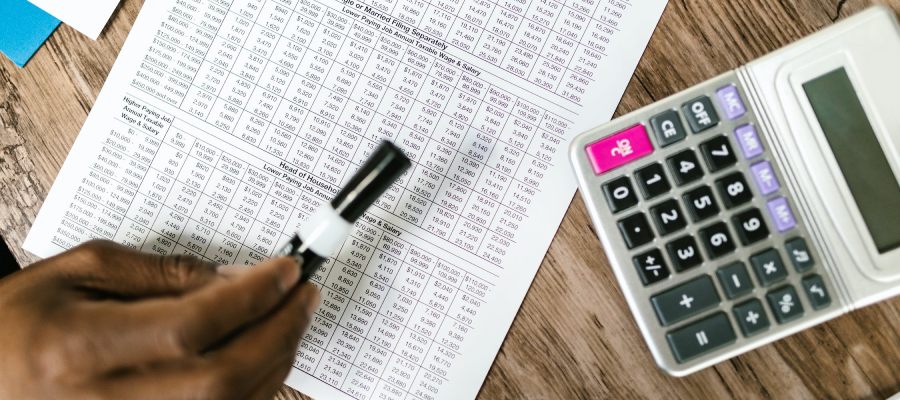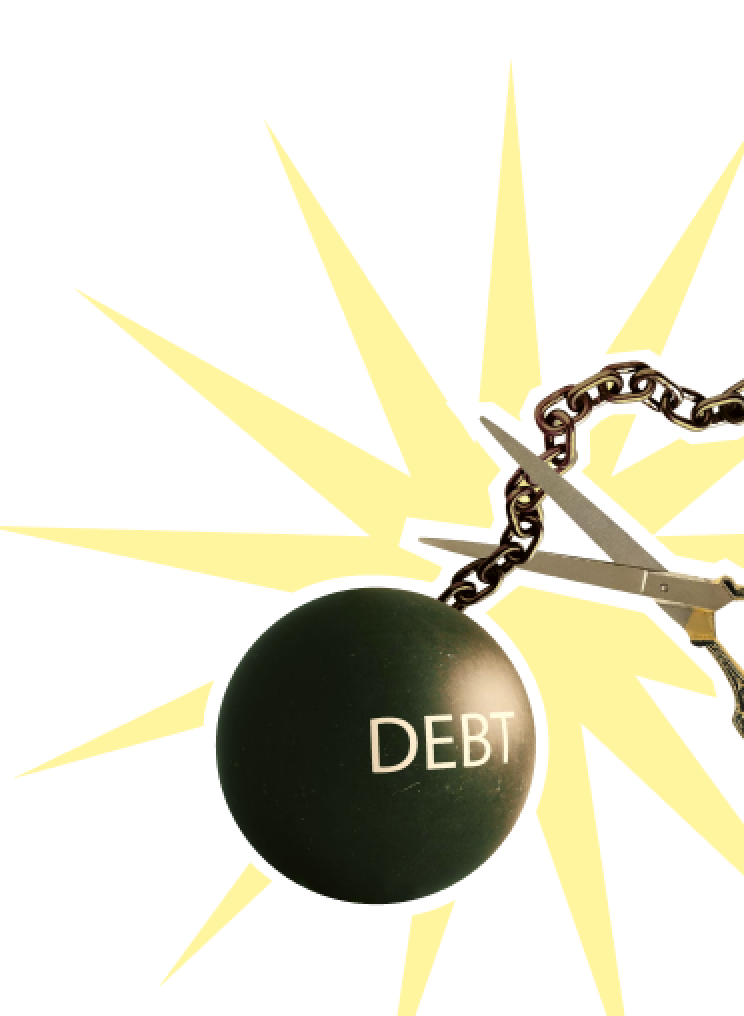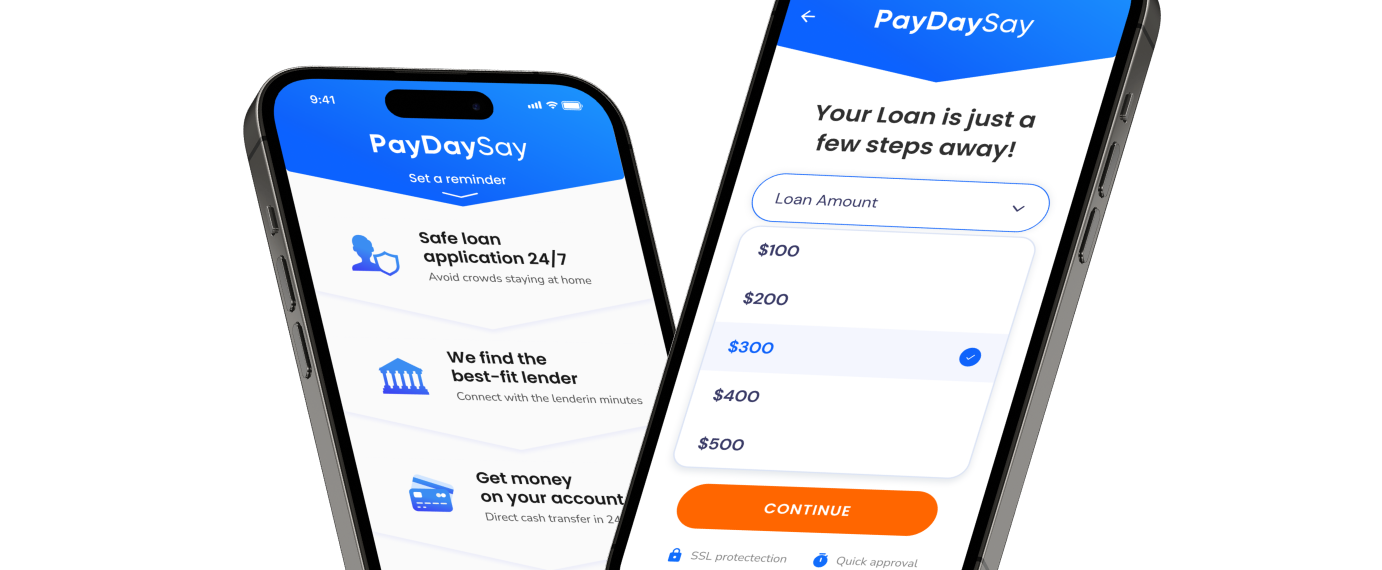If you are in a difficult financial situation and can no longer pay all of your loans on time, you need to make a difficult decision and get out of this situation. It is not easy, but it is real because you can take out a debt consolidation loan or declare bankruptcy.
Of course, the first option is always better since bankruptcy leaves a negative mark on your credit report, preventing many lenders from lending you money.
However, to get a debt consolidation loan, you need to find a financial institution ready to give you funds, which is not available to everyone. So, in this article, we’ll talk about bankruptcy vs. debt consolidation and discuss which variant is best.
What Is Bankruptcy?
Bankruptcy is a last-resort procedure created for people who can no longer repay their loans. It can discharge almost all your loans, including those the borrower has received from family or friends.
However, it is essential to understand that banks can take all bankrupt assets, including the house and the car. Therefore, if borrowers have secured loans, they will lose their collateral. Also, people with bankruptcy marks on their credit reports have huge problems getting new loans for the next 7-10 years.
It is also important to remember that individuals can choose between Chapter 7 and Chapter 13 bankruptcy, depending on their situation and future intentions. For example, some options allow borrowers to keep their home or other property if certain terms are met.
Chapter 7 Bankruptcy
People who file for Chapter 7 bankruptcy can count on a debt-free life because it allows them to avoid paying back old loans (except for “nondischargeable” debts like student loans). However, the whole procedure takes four to six months and consists of a court-appointed trustee overseeing the sale of your assets and then distributing the proceeds to the creditors you owe money to.
Of the advantages of this option, many note the ability to keep some of the property, providing it as a bankruptcy exemption. For example, you could keep your primary car, work tools, and furniture.
However, the main disadvantage of Chapter 7 bankruptcy is that a negative mark about it remains on your credit report for ten years and is a red flag for financial companies where you would like to take credit in the future.
In summary, this option is best suited for those with debts like credit card balances, medical bills, or personal loans as they get wiped out. In addition, the borrower’s family income must be, at most, the median income for a family of this size. In this case, it will be possible to keep more property by providing it as a bankruptcy exemption.
Chapter 13 Bankruptcy
Many financial experts recommend choosing Chapter 13 bankruptcy because it stays on your credit history for only seven years and allows you to keep most of your property. However, its primary disadvantage is that you must have money to take advantage of it.
Under Chapter 13 bankruptcy, the court sets up a debt repayment plan for three to five years, which you must follow. Usually, it will not cover all of your loans, only some of them, but the balance of your loans will be discharged at the end of the repayment period.
It is important to note that the law prescribes specific requirements for people who want to file for Chapter 13. For example, if your debt can’t exceed certain limits, you must be registered as an individual or a sole proprietor. Compared to the previous option, Chapter 13 is appropriate for high-income people who want to maintain their home, car, or other property.

Why Might You Choose Bankruptcy?
Bankruptcy hurts your credit history, but it can help you get out of debt in 1-5 years. Many borrowers see the opportunity to get discharged on their loans as a chance to start life from scratch and make a fresh start.
If you choose the right bankruptcy option, you can keep some of your assets or pay off less debt than you have. Unfortunately, this is not the case with payday loan consolidation; they are only suitable for those with a stable income and can get a new loan to pay off all the old ones.
Before filing for bankruptcy, consult with a financial expert, as it is a complicated procedure with not always a happy ending. In addition, this process requires much of your time and money (e.g., to pay an attorney), so use it only as a last resort.
What Is Debt Consolidation?
If you have too many different loans that are difficult to pay on time because of a high APR, you can consolidate them into one with a lower interest rate. This process is called debt consolidation.
Let’s imagine that you have three different loans:
- A credit card with a $5,000 balance at 18% APR.
- Personal loan of $10,000 at 15% APR.
- And an auto loan where you have another $5,000 left to repay at 12% APR.
To reduce the number and amount of monthly payments, you can get one new loan of $20,000 at 10% for seven years and thus save several thousand dollars in the first year. This leaves you with one monthly payment of $400 instead of three payments totaling more than $1,000.
Of course, this option is not ideal. For example, it is unsuitable for people with bad credit scores because they cannot get a loan at an affordable APR. In addition, to take advantage of debt consolidation, you need to have a stable income, as this option provides for the timely repayment of the borrowed funds.
Why Might You Choose Debt Consolidation?
Financial experts often recommend this option for those with a stable income, a good credit score, and confidence in their financial habits. For example, if your loans have too high an APR because you have a low FICO or VantageScore and no stable employment, it makes sense to get a debt consolation loan at a lower interest rate.
This method is also excellent for people who want to extend their loans and reduce their monthly payments. Debt consolidation loans stretch your debt over several more years, which can help you get by without delinquencies.
This way, you can also improve your FICO score because a new loan will not take more than 50 points off your credit score, but a late payment or transferring the debt to debt collectors will cost you 200-250 FICO points.
However, remember that you should only borrow money again to repay debts when you have changed your financial habits. For example, it doesn’t make sense to get a new loan to pay off credit card balances and then use them again and overspend money.
Debt Consolidation Vs. Bankruptcy: Pros And Cons
To make it easier for you to choose between the two options, we created a table with the pros and cons of each.
|
Debt Consolidation |
Bankruptcy |
|
|
Pros |
|
|
|
Cons |
|
|
How Do Bankruptcy And Debt Consolidation Affect Credit?
Bankruptcy is a destroyer of your credit history. This negative mark on your credit report will remain for 7-10 years and will be a red flag to many creditors. Not only will you have a bad credit score immediately after bankruptcy, but you will also be unable to rebuild credit fast, as many financial institutions will simply refuse to lend you funds.
In turn, debt consolidation does not negatively affect your credit history. Of course, just like any other loan, it will lead to a slight drop in your FICO score in the beginning. But in as little as 6 to 12 months, if you make your monthly payments on time and do not accumulate any new debts, you will gradually increase your credit score.

Bankruptcy Or Debt Consolidation: Which Is Better
Only you can decide which option is best for you. You need to analyze your financial situation and understand, first of all, whether you have a stable income and whether you can get a new loan to pay all your debts.
If your credit score and earnings allow you to get a debt consolidation loan, choose this option. Bankruptcy has more risks and consequences, so you should only turn to it if you have no other way to escape a difficult financial situation.
Answer three questions for yourself:
- Are you willing to lose some of your possessions so that your debts can be forgiven?
- Can you get through the next 7-10 years without new loans and with a low credit score?
- Do you now have the money to pay for an attorney and the court itself, as well as the time (4 months to 5 years), to go through the bankruptcy process?
If you answered “no” to at least one of these questions, you should consider alternatives to bankruptcy.














 on your homescreen
on your homescreen